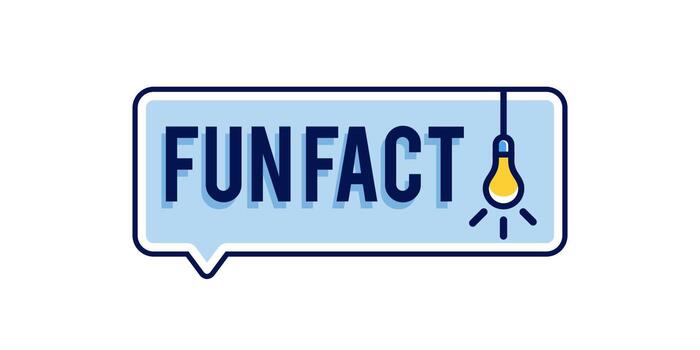As the New Year approaches, you will undoubted see and read many articles on why New Year’s resolutions never work and are best avoided.
It’s a trope that media outlets love to roll out at the end of December.
It’s nonsense.
New Year’s resolutions (and goal setting in general) work for those who are actually motivated to achieve the desired results and work hard to meet their goals..
Since 2010, I have been posting my New Years resolutions on my blog and social media and charting my progress month by month. While my New Year’s resolution success rate over the past five years stands at just over 55 percent, my life has changed immensely thanks to my yearly goal setting and the pursuit of these goals.
Here are a few examples:
____________________________________
In 2010 I resolved to floss every day. I have not missed a day of flossing since. It’s simply become something I do.
Incidentally, if you would like to start flossing, I suggest that you place the floss in the shower. Doing this creates an incentive:
Who would pass up an extra 30 seconds in the shower in order to be productive and extend your life (people who floss live longer)?
I gave this advice at a book talk in California once (in response to a question about how routines make me more productive), and about six months later, a woman wrote to me to say that while she appreciated everything about my talk, the advice on flossing had changed her life. She’s flossed every day since my talk, and her gums have never been so healthy and pain free.
It’s not hard. You, too, can be a dental nerd like me.
____________________________________
I established the goal of losing 10 pounds in 2010, and I have since lost 55 pounds and entirely changed the way that I live.
-
I exercise five times a week.
-
I know the calorie count of almost every food item that I eat.
-
I’ve permanently reduced meal portions.
-
I look better, feel better, and have more energy than ever before.
I still have weight to lose, but that single goal in 2010 has changed the way I eat, exercise and live ever since, and it will likely provide me with a longer, healthier life.
____________________________________
In an effort to reduce my cholesterol, I resolved to eat three servings of oatmeal a week in 2011. Since then I continue to eat at least that much oatmeal each week as part of my work day lunch. It’s a perfect midday meal: Easy to make, filling, low in calories, and delicious.
Some of my colleagues think I’ve crazy for eating the same thing almost every day, but as a result, my cholesterol dropped 40 points and has remained within the guidelines that my doctor set for me, and while so many of my friends are on medication to control their cholesterol, I am not.
This year one of my colleagues joined me in eating oatmeal everyday, so if I’m crazy, I’m also contagious.
____________________________________
In 2011, after two years of saying that I would do it, I resolved to participate in a Moth event as a storyteller, either at a live show or on their radio broadcast. Since my performance in my first Moth StorySLAM in July of 2011, storytelling has become an enormous part of my life.
I’ve won 38 Moth StorySLAMs and 6 GrandSLAM championships. I’ve told stories on stages all over the world. In 2013, Elysha and I founded Speak Up, and since then, we have produced more than 60 shows and partnered with amazing organizations like Voices of Hope and Yale-New Haven Hospital.
Now I teach storytelling to almost anyone you could imagine: CEOs and artists. Priests, minsters, and rabbis. Entertainers and writers. Salespeople and teachers. Professors and attorneys and real estate agents. Superintendents and social media teams. I’ve taught I’ve taught storytelling to Mohawk Indians on a reservation in Canada and to 13 rabbis on a retreat in upstate New York.
My teaching of storytelling led to the writing of Storyworthy: Engage, Teach, Persuade, and Change Your Life Through the Power of Storytelling.
That simple 2011 goal of telling one story at one Moth event has blossomed into one of the most important parts of my creative life.
____________________________________
In 2014, one of my goals was to “Find a way to keep Elysha home for one more year with the kids.” Honestly, I didn’t know how we would ever be able to manage living on one income for another year after surviving on one income for almost five years. I didn’t think it possible. But as soon as I wrote the goal down, my mindset instantly shifted from “Can I make this happen?” to “How am I going to make happen?”
I went on to achieve that goal three more times until Elysha finally went back to work this year.
Writing down the goal and acknowledging its importance made the decision automatic for me.
Figuring out the “How?” hasn’t always been easy, but the kids would never know it, and that’s what matters most.
Don’t let anyone fool you. New Year’s resolutions (and goal setting in general) can change your life, for the upcoming year and sometimes forever, if you actually apply yourself and monitor your progress carefully.
My advice:
-
Establish measurable goals that do not depend upon the actions or decisions of others for success. My goals are now to “Submit a book proposal” rather than “Publish a book.” Keep your goals within your control. I don’t always follow this rule (“Win three Moth StorySLAMs,” for example, relies on the opinions of judges), but I almost always do.
-
Create a specific plan for accomplishing each goal.
-
Check on progress regularly, and create a schedule for this.
-
Remind yourself repeatedly about what your life would look like if you achieved your goals. Envision this new life. See it in your mind’s eye as a reality.
-
Remind yourself that most people fail to accomplish their New Year’s resolutions, and that you are better than most people.
Two years ago, I came upon a piece in the Wall Street Journal on New Year’s resolutions that suggests that outsourcing your resolutions may improve your ability to achieve them.
Most of us could use help achieving our goals. Who better to tell us how to improve ourselves than someone who knows us well—perhaps better than we know ourselves—and even may be all too happy to offer up some tough love? And if we promise to check in regularly with this person to discuss our progress, we’ll probably do a much better job of keeping our resolutions.
“We all have blind spots, but the people we are intimate with can see through them,” says David Palmiter, a couples therapist and professor of psychology at Marywood University, in Scranton, Pa. A loved one can encourage us to meet our goals and hold us accountable when we slip, he says.
I had always asked a select group of friends to suggest goals for my upcoming year, but after reading this piece, I thought it might be a good idea to open up my goal selection process to anyone who might want to participate. I’ve been doing this for the past five years.
So if you’d like to suggest a goal for me in 2019, I would love to hear your ideas. Please note that this does not guarantee that I will adopt every suggested goal, but I will seriously consider all that are submitted.
Also note that all goals must be empirically measurable, so a goal like “Be less of a jerk-face” cannot be included in my list of resolutions (even if it’s a valid suggestion) because there is no way for me to determine if the goal was met.
But you’re welcome to tell me to stop being a jerk-face at any time if you’d like.
Not need to wait until the end of the year to make that request.
Submit your suggestions by commenting on this post or emailing me at matthewdicks@gmail.com.
Now go set a few goals for yourself in 2019. Maybe start with flossing. You can’t overstate the value of healthy gums.






